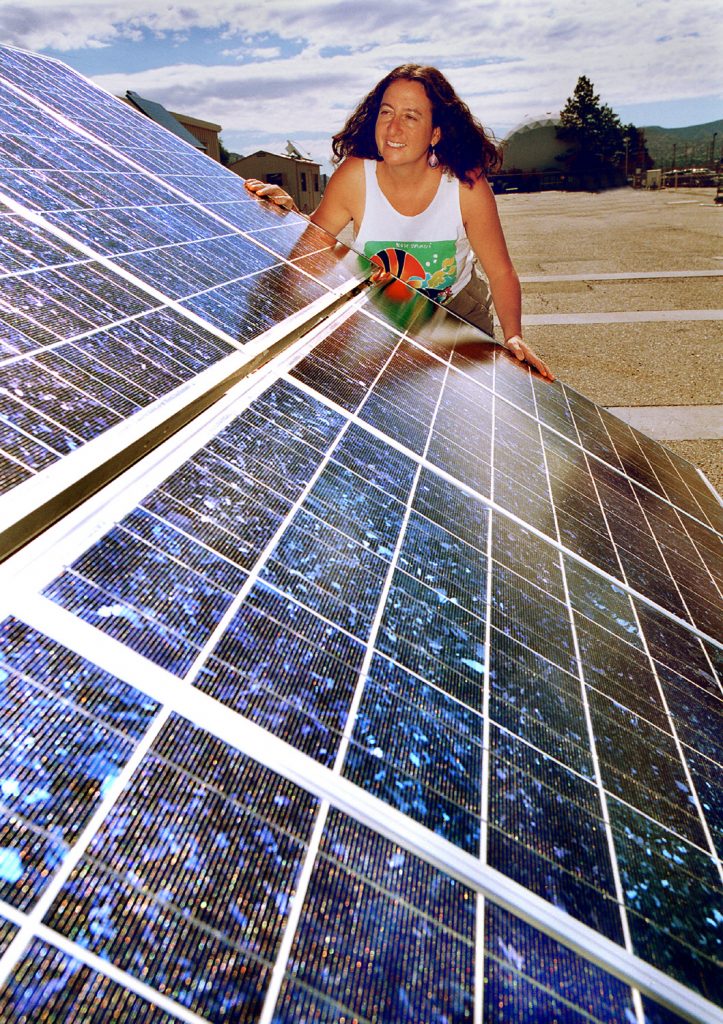
ALBUQUERQUE, N.M. — A new solar power initiative of the Navajo Tribal Utility Authority (NTUA) is bringing electricity to the homes of people living in remote areas of the reservation. The Department of Energy’s Sandia National Laboratories provides technical support.
In a program that is the largest of its type in the country, the NTUA is buying 200 photovoltaic systems for $2 million and installing individual units at private residences to furnish electrical power. Sandia engineers provide expertise to ensure the units are properly installed and working as intended.
Each system serves a single home. One hundred systems have already been installed, and another 100 are to be delivered to the NTUA throughout the summer. Utility officials are identifying new households to receive units.
Photovoltaics technology harvests energy from the sun and converts it into electricity. Batteries store the electricity for future use in the home.
Jimmie Daniels, NTUA solar program manager, says the utility decided to offer this alternative power source to its customers because the cost of stringing wire over parts of the reservation’s rural terrain is prohibitive.
“The only way for many of these people to have electricity is to provide each household its own photovoltaic unit,” he says.
Between 10,000 and 30,000 Navajos are estimated to live without electricity throughout the reservation that covers parts of New Mexico, Arizona, and Utah. The systems give some of these people their first opportunity to live in an illuminated world — having access to electric light so children can do homework at night and to radios, television, and computers to help reduce rural isolation.
The current program follows up a solar electric home experiment conducted by Sandia and the NTUA in the early 1990s. DOE provided $300,000 and other support that resulted in installation of 72 individual systems. Sandia helped develop a request-for-proposals for the earlier project and provided technical assistance.
“Based on results of that effort, the new systems are somewhat bigger with about 600 watts of photovoltaic collectors. They will be able to convert about 3 kilowatt hours per day on average in the winter,” says Roger Hill of Sandia’s Renewable Energy Department, who coordinates Sandia’s work with Native Americans. “That’s enough electricity to power a single household for a day — if the family members are conservative in their use of electricity.”
Earlier use of photovoltaics on the Navajo Nation had a problem, which is addressed in this effort — the systems sometimes failed due to lack of maintenance. Operating under a lease purchase agreement, NTUA performs the maintenance needed to ensure that the systems remain in working condition. After 15 years, the ownership and maintenance of the systems will be turned over to the customers.
Sandia’s photovoltaic laboratory houses one of the units where engineers test it for potential problems. Sandia also conducted a two-day course for NTUA technicians, showing them proper installation and maintenance techniques.
“We’ve spent many years at Sandia working with photovoltaics and sharing this knowledge with others,” Hill says.
Sandia engineer Marlene Brown, who travels once a month to Navajo country to provide technical support, says her job is to help troubleshoot units at the houses in the rural areas. She goes to the sites with an NTUA technician who shows customers how to maintain and use the equipment properly.
“The people are so pleased to have the units,” she says. “Before, many of them used generators for limited power or had no power at all. Now they have power provided by a clean, quiet source.”
